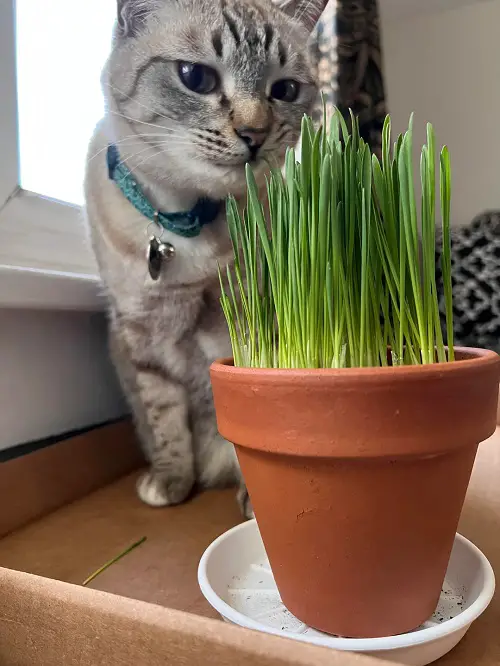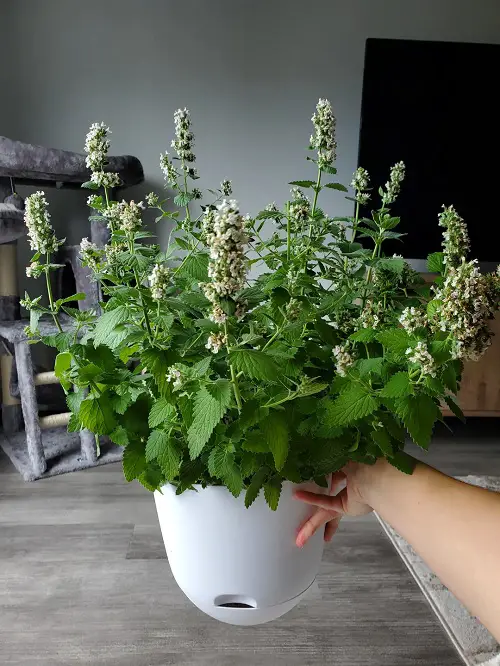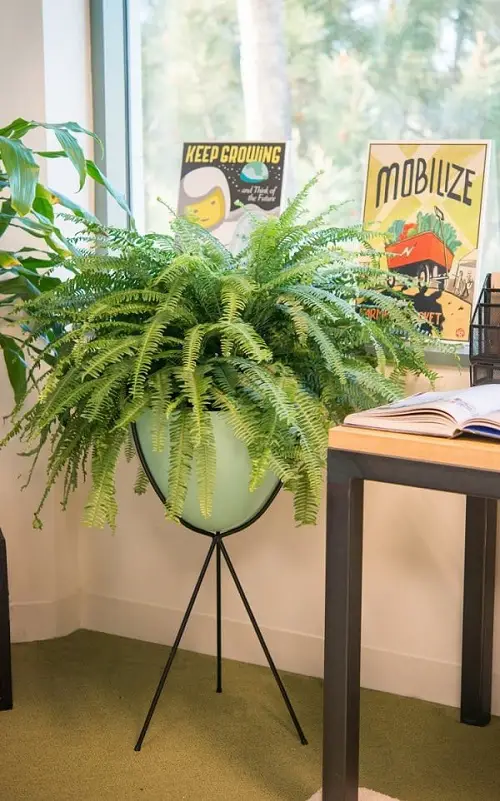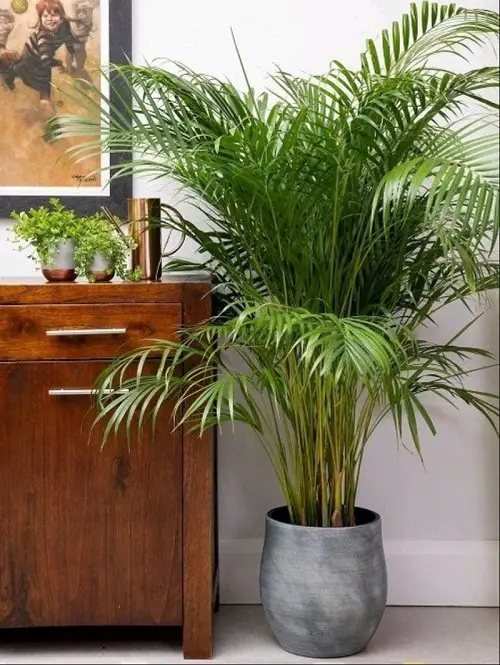If your cats love nibbling on your houseplants, this list of plants every cat owner should grow indoors is a must-read!
Cats are cute animals, but they are curious, too. If your feline is like that and you find her taking a bite of everything nearby, then you must be worried about toxic plants!
Well, this is not the case with these cat-friendly houseplants. They are safe, and some are so good that even cats can eat them.
Plants Every Cat Owner Should Grow Indoors
1. Cat Grass

Botanical Name: Dactylis glomerata and Others
Cat grass is used for different grasses that are safe for cats to eat–like wheatgrass, barley grass, oat grass, and ryegrass. These grasses are rich in nutrients and fiber, which can help with digestion and hairball problems. They are a natural way for cats to satisfy their instinctual need to graze.
Ensure the cat grass is grown indoors or in an area free from pesticides and herbicides. You can also consume cat grass, but it won’t be as nutritious for you as it is for cats.
They’re used in salads or simply by chewing on the blades. Here’s how to grow it! Don’t go overboard when growing such grasses–it’s best to go with container planting.
2. Spider Plant
Botanical Name: Chlorophytum comosum
Spider plants are popular houseplants with long, arching leaves of green and white. They grow easily, don’t need much attention, and are cherished for their foliage. Cats love these plants as they give off mild compounds similar to catnip, which are mildly hallucinogenic.
Your cats can play with it safely; occasional munching would not hurt them–even ASPCA says so. It’s safe for dogs, as well. Grow it indoors with this guide.
3. Catnip

Botanical Name: Nepeta cataria
This one is no surprise; every proud cat owner has this indoor plant! Catnip is a perennial herb that has a short life of 2 to 3 years. Its leaves are fuzzy in texture, look like small hearts, and are complemented by small, purple-blue flowers that emit a minty scent.
Catnip is not only nontoxic but also a favorite snack for many cats around the world. The reason for cats’ infatuation with catnip lies in the presence of a compound called nepetalactone–it triggers a robust and pleasurable response in cats. Check this article about caring for catnips for help.
4. Areca Palm
Botanical Name: Dypsis lutescens
Originally from warm, tropical Madagascar, the areca palm is a real showstopper in any indoor space. This plant’s foliage gives an extremely tropical feel but barely flowers indoors. It can live for decades and grow as tall as 8 feet while growing indoors.
But the best part is that it is completely safe for cats to consume. Its air-purifying qualities, beautiful leaves, and pet-friendliness make it a perfect choice for homes with cats, dogs, and even horses. Read how to grow it here.
5. Boston Fern

Botanical Name: Nephrolepis exaltata
The Boston fern is also called the sword fern because its stems and leaves make its foliage look like swords. It’s great for humid environments and grows lush and full with little care, making it a lovely indoor choice.
This fern is safe for cats, and if yours happens to nibble on the fronds, there’s no need to worry–it’s non-toxic. It does wonders for the air quality and home aesthetics. If you want to grow it, follow our guide.




